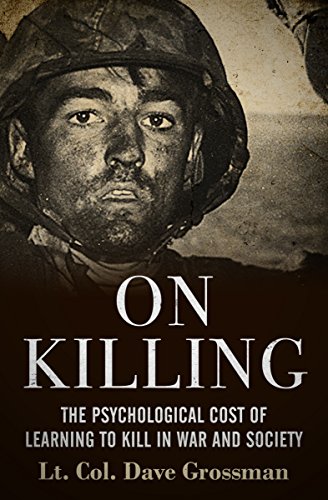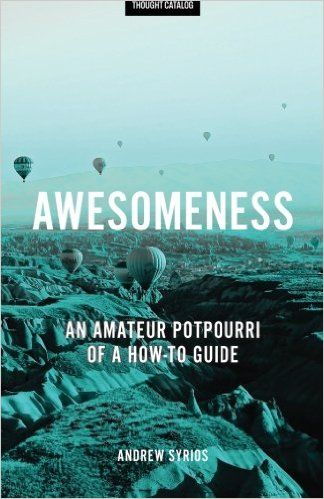|
I had the chance to read the fascinating book On Killing by Lt. Dave Grossman on the psychology of killing, particularly in combat. He notes some amazing statistics about the history of combat, including:
- During World War II, only around 15-20 percent of American soldiers so much as fired at the enemy. In all likelihood, many fewer intended to hit their target. - In World War II, one percent of pilots accounted for 40 percent of kills. - During the battle of Gettysburg, half of the muskets retrieved from the field were loaded (some more than once). Given it takes a lot more time to load a musket than to fire one, this heavily implies most soldiers were not firing at the other side. In many ways, this makes sense to me. Among many other animals, there is a lot of fighting, particualrly amongst males to become the so-called "alpha male." But these fights rarely end in death. And what boy hasn't gotten into a fight. One of the remarkable things is how often these boys are chatting it up and friends again only hours or even minutes after such a brawl. Some of the few who kill are psychopaths. The others are what Grossman calls "sheep dogs." Perfectly decent men, but one's who are actually willing to do whatever it takes to protect their group. These men would never kill another human being normally, but can do so in combat whereas most cannot. And when I think back upon history, this makes sense as I was never able to figure out how battles lasted hours when they should really last minutes. This is especially true in 18th and 19th century warfare where two standing armies just stood in front of each other and fired. How could they not all be dead in like 15 minutes? Well the answer is that most people just can't get themselves to kill another human being. Even those horribly toxic men! Grossman notes that one Harvard professor went so far as to say that war in ancient Greek city states "were only slightly more dangerous than American football." But Grossman also warns that this has changed given new training techniques. The military started using Pavlovian training to effectively brainwash soldiers to actually fire upon the enemy. This was done with repeated practice of firing and targets that looked like human beings. If a human is conditioned enough to do something, it becomes second nature. By the Vietnam War, some 90 to 95 percent of American soldiers fired at the enemy. Grossman believes it is mostly this fact; killing or being willing to kill another person, that leads to post traumatic stress. He notes that PTSD was relatively rare in cities being bombed. Most of us, apparently, are far more willing to die than to kill. He then relates this to modern movies and television, noting that over 200 studies have shown a strong correlation with TV and violence. I'm not as convinced with this finding. Other studies have found no particular connection between video games and violence. And Robert Putnam noted in Bowling Alone that television back in the 50's seemed to raise violence. Television in the 50's wasn't particularly violent. Perhaps its the passive act of watching television, or other factors like the breakdown of the family that play a bigger role (although both Putnam and Grossman believe TV has played a part in the breakdown of the family). That being said, I do think it is cause for concern. And either way, Hollywood and the video game industry should tone it down or at the very least, stop making violence something that is glorified when "bad people" get what's coming to them. Violence should either be cartoonish or awful. It shouldn't be celebrated even if the effect Grossman warns about is exaggerated.
Comments
|
Andrew Syrios"Every day is a new life to the wise man." Archives
November 2022
Blog Roll
The Real Estate Brothers The Good Stewards Bigger Pockets REI Club Meet Kevin Tim Ferris Joe Rogan Adam Carolla MAREI 1500 Days Worcester Investments Just Ask Ben Why Entrepreneur Inc. KC Source Link The Righteous Mind Star Slate Codex Mises Institute Tom Woods Michael Tracey Consulting by RPM The Scott Horton Show Swift Economics The Critical Drinker Red Letter Media Categories |

 RSS Feed
RSS Feed


